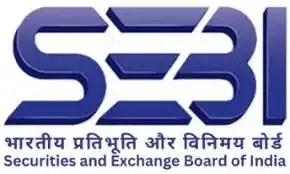Shopping cart
Your cart empty!
Terms of use dolor sit amet consectetur, adipisicing elit. Recusandae provident ullam aperiam quo ad non corrupti sit vel quam repellat ipsa quod sed, repellendus adipisci, ducimus ea modi odio assumenda.
Lorem ipsum dolor sit amet consectetur adipisicing elit. Sequi, cum esse possimus officiis amet ea voluptatibus libero! Dolorum assumenda esse, deserunt ipsum ad iusto! Praesentium error nobis tenetur at, quis nostrum facere excepturi architecto totam.
Lorem ipsum dolor sit amet consectetur adipisicing elit. Inventore, soluta alias eaque modi ipsum sint iusto fugiat vero velit rerum.
Sequi, cum esse possimus officiis amet ea voluptatibus libero! Dolorum assumenda esse, deserunt ipsum ad iusto! Praesentium error nobis tenetur at, quis nostrum facere excepturi architecto totam.
Lorem ipsum dolor sit amet consectetur adipisicing elit. Inventore, soluta alias eaque modi ipsum sint iusto fugiat vero velit rerum.
Dolor sit amet consectetur adipisicing elit. Sequi, cum esse possimus officiis amet ea voluptatibus libero! Dolorum assumenda esse, deserunt ipsum ad iusto! Praesentium error nobis tenetur at, quis nostrum facere excepturi architecto totam.
Lorem ipsum dolor sit amet consectetur adipisicing elit. Inventore, soluta alias eaque modi ipsum sint iusto fugiat vero velit rerum.
Sit amet consectetur adipisicing elit. Sequi, cum esse possimus officiis amet ea voluptatibus libero! Dolorum assumenda esse, deserunt ipsum ad iusto! Praesentium error nobis tenetur at, quis nostrum facere excepturi architecto totam.
Lorem ipsum dolor sit amet consectetur adipisicing elit. Inventore, soluta alias eaque modi ipsum sint iusto fugiat vero velit rerum.
Do you agree to our terms? Sign up

The Securities and Exchange Board of India (SEBI) has proposed a major overhaul of how mutual fund expenses are structured — a move that could make investing cheaper, more transparent, and more beneficial for retail investors.
In a consultation paper released on Tuesday, SEBI outlined plans to simplify Total Expense Ratio (TER) rules, eliminate extra charges, lower brokerage fees, and exclude government taxes from expense caps. The regulator has invited public feedback until November 17, 2025.
According to SEBI, the goal is to ensure investors directly benefit from the rapid growth of India’s ₹75.6 lakh crore mutual fund industry.
Currently, mutual fund houses charge various fees under the Total Expense Ratio (TER) — covering management, distribution, and other costs. SEBI now aims to streamline this system by:
Removing the additional 5 basis points (bps) that fund houses could earlier charge to cover distribution expenses.
Raising the first two slabs of TER by 5 bps to allow flexibility while maintaining lower overall costs.
Excluding government levies such as STT, GST, CTT, and stamp duty from the TER limit, ensuring transparency in cost structure.
Puneet Singhania, Director at Master Trust Group, welcomed the move, stating, “Lower expenses will directly improve investor returns, enhancing confidence in mutual fund products as long-term wealth creation tools.”
SEBI also proposed tightening limits on brokerage and transaction charges — from 12 bps to 2 bps for cash transactions and 5 bps to 1 bps for derivatives. This aims to prevent double-charging investors for trade execution and research.
Shivani Nyati, Head of Wealth at Swastika Investmart, said, “While large AMCs may see pressure on profit margins, this reform aligns India’s mutual fund industry with global best practices and promotes operational transparency.”
The new fee structure will make mutual fund costs simpler and more predictable. Analysts expect it to attract first-time investors and strengthen Systematic Investment Plan (SIP) participation.
SEBI also plans to introduce incentives for women, senior citizens, and small investors, offering them better terms similar to special benefits seen in fixed deposits.
If implemented, these proposals will make mutual fund investing more cost-efficient, transparent, and trustworthy — marking a new chapter in India’s retail investment ecosystem.
9
Published: Oct 30, 2025